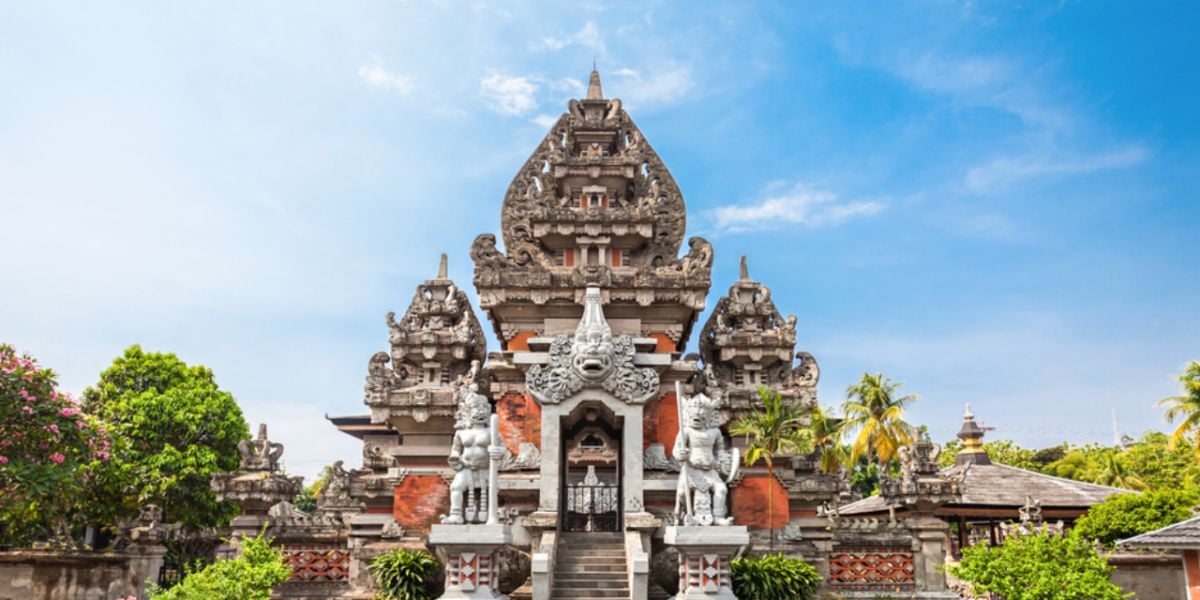
How to greet people in Jakarta
Just smile, smile and smile! Indonesians are known as the most smiling people in the world for a reason. So don't be surprised to see strangers smiling at you on the street: it's simply a greeting. Smile back with a slight nod. Refusing to smile back can make you look rude and unfriendly.
Speaking a few words in the local language can also help you to integrate better. Indonesians are always delighted when a foreigner attempts to speak their native language.
So here are some simple Bahasa words to use in everyday life:
- Good morning (informal) - Halo / Hai,
- Good morning (morning) - Selamat pagi,
- Good morning (afternoon) - Selamat siang.
- Good evening - Selamat sore
- How are you? - Apa kabar?
Please note that when greeting a woman, especially a Muslim woman, it is best to wait for her to extend her hand before shaking it. If the person you are greeting is not used to handshakes, a slight nod will be enough.
The meaning of hand gestures in Jakarta
Avoid using your left hand when interacting with the locals, as this hand is considered unclean. But if your right hand is busy and you really need to use your left hand, say "Maaf" meaning sorry.
Likewise, avoid pointing at people. This gesture is considered rude in Jakarta. Instead, use your open palm or thumb.
Honoring the elderly in Jakarta
Just like in other Asian countries, Indonesians attach great value to social hierarchy. Everyone has a status, both within the family and in the neighborhood. Not respecting this rule is "kurang ajar", bad manners.
At the top of this hierarchy are the elderly or high-ranking people:
- Elder / older - Bapak / Pak
- Elderly / older - Ibu / Bu
- Same age / young adult male - Mas / Kakak / Kak
- Same age / young adult female - Mbak / Kakak / Kak
- Younger - Adik / Dik
Good to know: The titles "Adik / Dik" should only be used for people who are visibly younger than you, such as children and teenagers. If you are not sure of the age of the person, use Mas, Mbak or Kakak instead.
Eating with the locals in Jakarta
When sharing a meal with Indonesians, one should wait for the elders or the host to start eating before touching the food, and before eating, one should also wish "Mari makan", which is the equivalent of "bon appétit".
Just like in India, people often eat with their hands in Indonesia. This is an unmissable experience when you are on Indonesian soil. However, if you have difficulties, do not hesitate to ask for a spoon and a fork. Indonesians usually hold the spoon in their right hand and the fork in their left. Knives are rarely part of the cutlery in Indonesia.
The dress code in Jakarta
Compared to other cities in Indonesia, Jakarta is rather lenient on dress codes. But be careful to avoid revealing clothing and favor modesty when visiting religious sites. At work, the international standard is generally applied.
Visiting people in Jakarta
Another thing to remember about the Jakartans is that they love to visit people and entertain their guests. These practices are an integral part of Indonesian culture. It is called "silahturah", which can be translated as strengthening the bonds between friends, relatives and neighbors.
When you move into your neighborhood, don!t be shocked to see your neighbors visit you and bring you gifts, usually in the form of food or small trinkets. This is how Jakartans greet and welcome their new neighbors!
Jakartans love to have people over, and so you will be invited very often, especially during vacations. Your hosts don"t expect anything in return unless it's a potluck, where you have to bring a dish. In any case, remember to bring a small gift to thank your hosts for receiving you!
Don't forget to take off your shoes before entering, and greet everyone, starting with the oldest person present.
Public displays of affection in Jakarta
Showing affection in public is usually not looked upon favorably. Kissing, called "Cipika-cipiki" in Indonesian slang, is acceptable between friends of the same sex, but it is forbidden to kiss your partner's lips... Instead, you will be allowed to hold hands!
The culture of « Saving face » in Jakarta
The importance of dignity is very strong for Indonesians. Saving face means that you should consider the dignity of others and avoid humiliating them in private or in public. Indonesians generally avoid expressing their displeasure publicly as much as possible. Instead, they do it in private, always with a view to preserving the other person's dignity.
In Jakarta, avoid public confrontations and seek to discuss disagreements in private. Openly expressing displeasure or anger, especially in an explosive manner, is considered very rude.
Useful link:
We do our best to provide accurate and up to date information. However, if you have noticed any inaccuracies in this article, please let us know in the comments section below.








